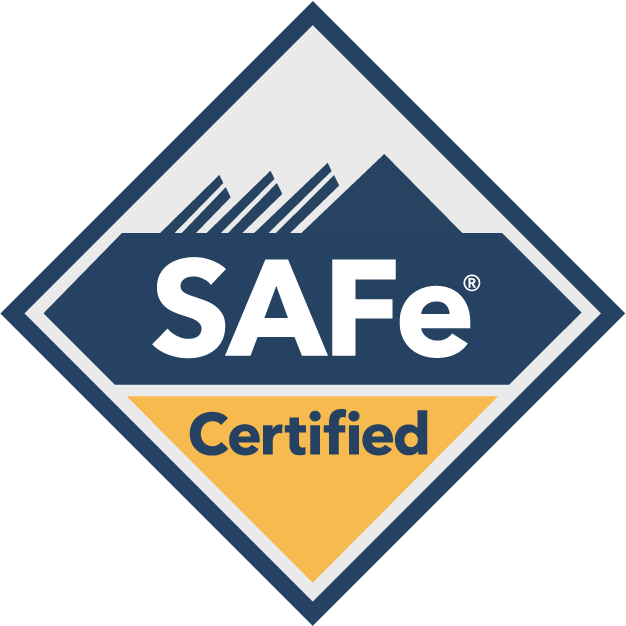Subscribe to the blog
Introduction:
For a product to go through the stages of development, positioning, pricing, all the way to launching, it needs someone to steer the ship. This driver is the product manager, who takes care of the entire lifecycle of the product from its ideation until it hits the market and even beyond that. Now, product management sounds like a significant job. And it is. But do product managers need some specific qualifications to steer this ship? Is there a driving license without which they cannot hold the steering wheel? Let's find out.
Who is a Product Manager?
Product management is a visionary function and a product manager is the visionary who identifies the customer needs and the business goals and envisions the product that can fulfill both. Then, they set the product's strategy and roadmap, and define product features. They also set goals in the form of a timeline required to ship out the product in a proper condition. Product management involves great responsibility and commitment toward all aspects of the product.
What does the role of a product manager look like in an organization matrix? In huge organizations, this role works in conjunction with specialists. This means product managers have access to a team of researchers, UI/UX specialists, marketers, analysts, developers, designers, and other roles that help them execute their vision. At the same time, product management involves coordination with product stakeholders.
The role looks the same in smaller organizations, but product managers may have less time to invest in relationship building. They spend most of their time following through on executing the initially set vision.
They communicate with both internal and external stakeholders. Internal stakeholders include the engineering, sales, marketing, customer success, legal, the leadership teams, and board members, while the external stakeholders include customers, end-users, and partners.
What makes a Product Manager good at their job?
Although the role of a product manager can vary from company to company, there are some skills that are essential for any good product manager. Here are a few:
Clarity of goals and prioritization
A successful product manager is someone who dons several hats. They need to have a clear understanding of the product goals and be able to prioritize initiatives to achieve these goals. They also need to work with different stakeholders (such as engineering, design, marketing, sales, etc.) and align them around the same objectives. Product management involves scouting hundreds of product feedback and features to find out the ones that need to be attended to immediately. Several factors are at play — from product-related goals to customer feedback, from business goals to costs involved. An efficient product manager will clarify how these factors impact the product and brand. They will then also assess which product features to prioritize in the development process.
Good understanding of the market
As any experienced product manager knows, successful decision-making is key to the success of any new product. To do this effectively, a good product manager must be well-versed in the market and customer needs, as well as familiar with the development and delivery process for the product. This means conducting extensive research to learn about each of these important aspects, paying close attention to both current trends and potential shifts in the landscape over time. By staying up-to-date on all aspects of the market, customers, and development process, a good product manager is able to make strategic decisions that will help bring their product successfully to market and keep it competitive once it is there. Ultimately, it is this comprehensive understanding of the market that sets successful product managers apart from their peers.
Leadership Skills
Being a product manager requires more than just an intimate knowledge of the ins and outs of product development; it also requires strong leadership skills. From brainstorming new products to overseeing the implementation process, product managers are constantly facing new challenges. Product managers also need to be exceptional leaders. But they cannot do everything themselves, so they need to delegate the work and support the team members in doing their respective tasks. This means that they need to delegate tasks as needed, offer support when needed, and structure workflows in ways that allow each team member to reach their full potential.
Product managers keep the entire product team as a well-oiled machine. They conduct meetings, implement managerial systems and demand reporting mechanisms, and constantly coordinate efforts and communication with other internal and external stakeholders.
Resilience
As a product manager, it is essential to be resilient. This means having the ability to bounce back from failures and setbacks, as well as accepting the uncertainty that comes with taking risks and trying new things. Some key qualities of a resilient product manager include adaptability, creativity, and curiosity.
Adaptability is essential for exploring new ideas and approaches, while creativity enables one to think outside the box when faced with challenges or roadblocks. Finally, curiosity provides with an insatiable hunger for knowledge, allowing one to stay on top of industry trends and quickly spot emerging opportunities. With these qualities, a product manager can navigate the ups and downs of their role with ease and confidence, helping to ensure long-term success for both themselves and their company.
Do Product Managers Need Technical Expertise?
It is a much-debated question: do product managers, the focal point of contact on any product-related development, need to have a technical background? Indeed, common sense dictates that familiarity with the technical aspect of product development and design will help better understand the processes and develop an informed plan of action.
Product management certainly requires managers to have an understanding of technical concepts, but they need not be technically trained in the software to make all those decisions about the product. Product management is a very personalized function, varying depending on the kind of product being developed. Whether a product manager will need technical expertise depends on, among other factors:
- The composition of the rest of the team. If the team consists of junior members in a department, they will need the product manager to steer their efforts cohesively. The product manager, in this case, will need a technical foundation.
- The kind of product being developed. If the product being developed is a niche B2B enterprise software, customer feedback will likely come wrapped in jargon and technical pointers. A product manager with a technical background will be able to decipher the pain points from the jargon and set remedial work into action.
A Technical Background is not a Must-Have, but Good to Have
Drawing from the above points, it is clear that product managers with technical skills have an upper hand in specific situations. They can form more robust communication and professional rapport with the team if they can speak their language. Mutual understanding about achievable goals also helps such product managers warm up to the product development team.
Consider this situation: a product manager knows how to code. They are well aware of the software functions and can see how difficult or easy it might be for the software engineering team to incorporate new changes or integrations into the code. This product manager can predict how long it might take to execute such a project and will develop a product roadmap that aligns with this timeline. Of course, it immensely helps that they have the technical know-how in this situation.
But these are all "good-to-haves", not "must-haves" for their job, meaning that the product manager will not fail at the position without technical backing. They will approach it differently. In the same scenario as above, just because a product manager comes from a marketing background does not mean that they will arbitrarily set the product roadmap or timeline. Instead, they will consult with the team or hire a leader for the software engineering team to fill in this gap.
In the case of a very technical product (as shared previously), a technical product manager can be an asset.
Soft Skills stand out for Product Managers
Soft skills — or skills that influence how you conduct yourself at work — like interpersonal skills, communication skills, time management skills, listening skills, digital literacy, etc., form a crucial part of any product management job. You could be the best technical expert on the team, but you will not be a good fit for the product management role unless you have and practice these soft skills.
Many argue that being too technically informed can make an inefficient product manager, as they will obsess over details instead of looking at the big picture as they're supposed to. In this respect, someone from a non-technical background can be an asset. They will not place limitations on their vision from the get-go. This gives room for innovation and creative problem-solving.
Product managers should have fundamental knowledge about technical things to effectively communicate with the developers, but ultimately their leadership skills are the defining factors of their job success.
Conclusion
So, do product managers need a technical background? The answer is no. But it sure can’t hurt! A lot of the skills that PMs need—communication, problem-solving, organization—can be learned and honed without any formal technical training. However, having some knowledge of how technology works (and how your products fit into that) will give you a much better understanding of the big picture and make you a more effective Product Manager.




